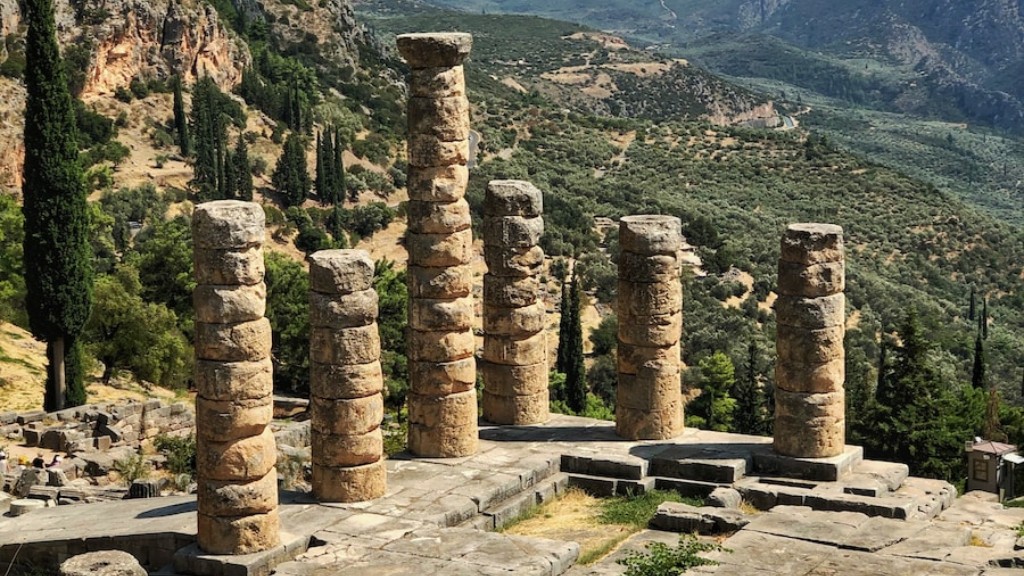Ancient Greece: Exploring its Remarkable Contributions
Introduction
Ancient Greece, a civilization that flourished from the 8th to the 6th century BCE, left an indelible mark on Western culture. Renowned for its intellectual, artistic, philosophical, and political achievements, ancient Greece laid the foundation for many aspects of our modern society. This article aims to provide a comprehensive overview of what ancient Greece was famous for, examining its contributions across various domains.
The Birthplace of Democracy
One of the most significant and enduring legacies of ancient Greece is its role in the development of democracy. Athens, the city-state at the heart of ancient Greece, is often hailed as the birthplace of democracy. In the 5th century BCE, Athenian citizens actively participated in the decision-making process and had a say in matters of governance. This groundbreaking political system, characterized by citizen involvement, has permeated through the centuries and continues to be cherished and emulated today.
Foundations of Philosophy and Science
Ancient Greece also served as the cradle of extensive intellectual exploration. Pioneering thinkers like Socrates, Plato, and Aristotle played pivotal roles in shaping the foundations of philosophy. Their influential ideas on ethics, logic, and metaphysics not only shaped Western philosophy but also inspired countless generations of scholars worldwide.
Furthermore, ancient Greece made notable strides in scientific understanding. The discoveries of philosophers such as Pythagoras, who proposed the theorem bearing his name, and Archimedes, who made ground-breaking contributions to mathematics and physics, laid the groundwork for subsequent advancements in the field.
The Renaissance of Medicine
The ancient Greeks made significant contributions to the field of medicine, revolutionizing the way health and wellness were understood. The Hippocratic Corpus, a collection of writings attributed to the physician Hippocrates, served as an essential foundation for medical ethics and clinical practice. The emphasis on observation, documentation, and systematic analysis introduced by ancient Greek medical practitioners formed the basis of modern medical practice and shaped the development of Western medicine.
Magnificent Architecture and Engineering
Ancient Greece’s architects and engineers left an enduring legacy of magnificent structures. The iconic Parthenon, located atop the Acropolis in Athens, stands as a testament to their architectural prowess. This majestic temple, dedicated to the goddess Athena, exemplifies the classical Greek architectural style characterized by balanced proportions and exquisite detailing. The architectural principles employed by ancient Greek architects continue to inspire and influence modern structures.
Artistic Splendor and Drama
Ancient Greece witnessed a remarkable flourishing of artistic expression. The exquisite sculptures of the Hellenistic period, distinguished by their attention to naturalism and idealized beauty, exemplify the artistic achievements of the time. Painting, pottery, and music also thrived, reflecting the Greek passion for aesthetic perfection.
Ancient Greece further gave birth to the dramatic arts. The origins of modern theater can be traced back to the ancient Greek tradition of staging plays in amphitheaters. Renowned playwrights like Aeschylus, Sophocles, and Euripides presented captivating stories that explored universal themes and emotions, leaving an enduring impact on theatrical practice.
Olympic Ideal and Athletic Excellence
The ancient Greeks celebrated physical prowess and placed immense importance on athletic competition. The Olympic Games, held every four years in Olympia, brought together athletes from various city-states to compete in a wide range of events. This ideal of physical excellence and fair play continues to inspire modern sporting events and serves as a testament to the enduring influence of ancient Greek culture.
Conclusion
Ancient Greece’s enduring legacy is a testament to the remarkable contributions of this civilization. Its influence on democracy, philosophy, science, medicine, architecture, art, and athletics permeates our modern world. By understanding and appreciating the achievements of ancient Greece, we can gain insights into the foundations that underpin our contemporary society and continue to push the boundaries of human knowledge and creativity.


